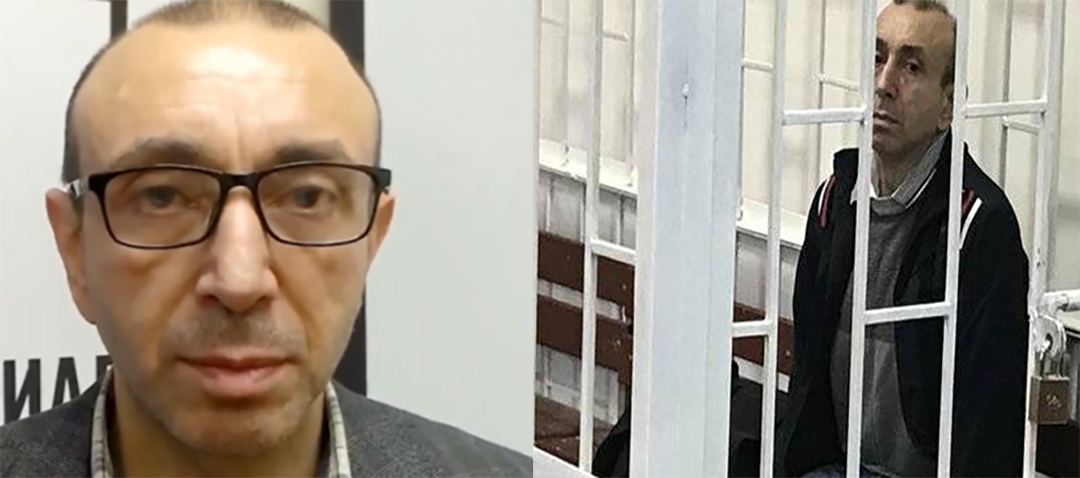

A court in the Russian Republic of Daghestan has awarded a local man ₽800,000 ($12,000) in compensation for moral damages over his illegal criminal prosecution.
The Sovietsky District Court in the Daghestani capital, Makhachkala, awarded the money to local resident Sultakhan Ibragimov. Ibragimov was cleared of two counts of murder by the Supreme Court of Daghestan in October 2017.
Shamil Magomedov, a lawyer from Russian rights group Memorial who represented Ibragimov in court, told OC Media that the authorities abducted Ibragimov several times during the investigation and tortured him into confessing to the murders.
Magomedov said they had sought ₽5 million ($76,000) in compensation from the Russian Government for Ibragimov’s ‘illegal criminal prosecution and torture’.
He said that they intended to appeal the decision to award only ₽800,000.
‘Abductions and torture’
Prior to his arrest, Sultankhan Ibragimov worked as a videographer and a member of Daghestan’s Public Monitoring Commission, a human rights watchdog for Russian prisons.
In March 2016, he was detained for the murders of Alisultan Omarov, a Greco-Roman wrestling coach, and Nazim Gadzhiyev, the leader of Lezgi group Sadval.
Ibragimov told OC Media that in March 2016, unknown people in two cars took him from his summer house to the Makhachkala police department. He said he was tortured there for seven days and pressured into confessing to the killings.
According to Magomedov, when Ibragimov refused to confess to Omarov’s murder, officers at the Kaspiysk police department claimed to have found illegal drugs on him. ‘A few days later, his confession appears, but there is no mention of drugs or the murder of Gadzhiyev’, Magomedov said.
Magomedov says there were also repeated attempts to plant weapons on Ibragimov.
In November 2016, Ibragimov was convicted on drugs charges.
Magomedov said that the evidence in the investigation was contradictory and that the case files did not include video recordings from surveillance cameras that could have revealed who the real killer was.
Magomedov said he believed that the case was falsified by an investigator from the Daghestani Investigative Department, Magomedzagir Daudov. In 2008, Daudov was detained by the Federal Security Service (FSB) for extorting ₽400,000 ($6,100) from a resident of Daghestan.
According to Magomedov, in the hearings into Ibragimov’s illegal criminal prosecution, the legality of the investigator’s actions was not examined. He said that in such cases it was extremely difficult to initiate criminal proceedings against investigators.
‘Moral harm is more difficult to prove’
Aida Kasimova, a Daghestani lawyer who often takes compensation claims to court, told OC Media that rulings granting compensation for moral damages for those acquitted of crimes were no longer rare, but that acquittals themselves remained uncommon in Daghestan.
Kasimova said that those exonerate of crimes almost always sought compensation in court, but that the amounts claimed in the lawsuits were not always satisfied by judges.
‘The practice of recovering money after acquittals are always positive. The only question is the amount of compensation. It’s not always possible to recover everything’, she said.
According to Kasimova, material damages, such as legal expenses, business trips, travel, medical treatment, and purchase of medicines, are always paid if they are documented.
‘Compensation for moral damage is more difficult to prove’, she said.
According to her, the payment of compensation may be delayed up to a year, but the Russian Ministry of Finance has to pay it.
According to Kasimova, such compensation cases almost never involve the officials who opened the fabricated criminal cases to begin with, meaning it is the state that has to pay compensation.
After the criminal case was dropped into Meduza journalist Ivan Golunov in June, MPs from the Spravedlivaya Rossiya (‘just Russia’) party introduced a bill in the Russian State Duma proposing compensation for moral damage for illegal criminal prosecution and illegal imprisonment.
The bill proposed amendments that would set the amount of compensation, taking into account the nature of the physical and moral suffering inflicted.
The bill sets out minimums for compensation of ₽1,000–₽15,000 per day of prosecution for illegal or unjustified criminal prosecution, restriction of liberty at the preliminary stage of an investigation, and imprisonment.







